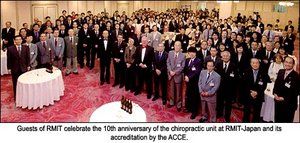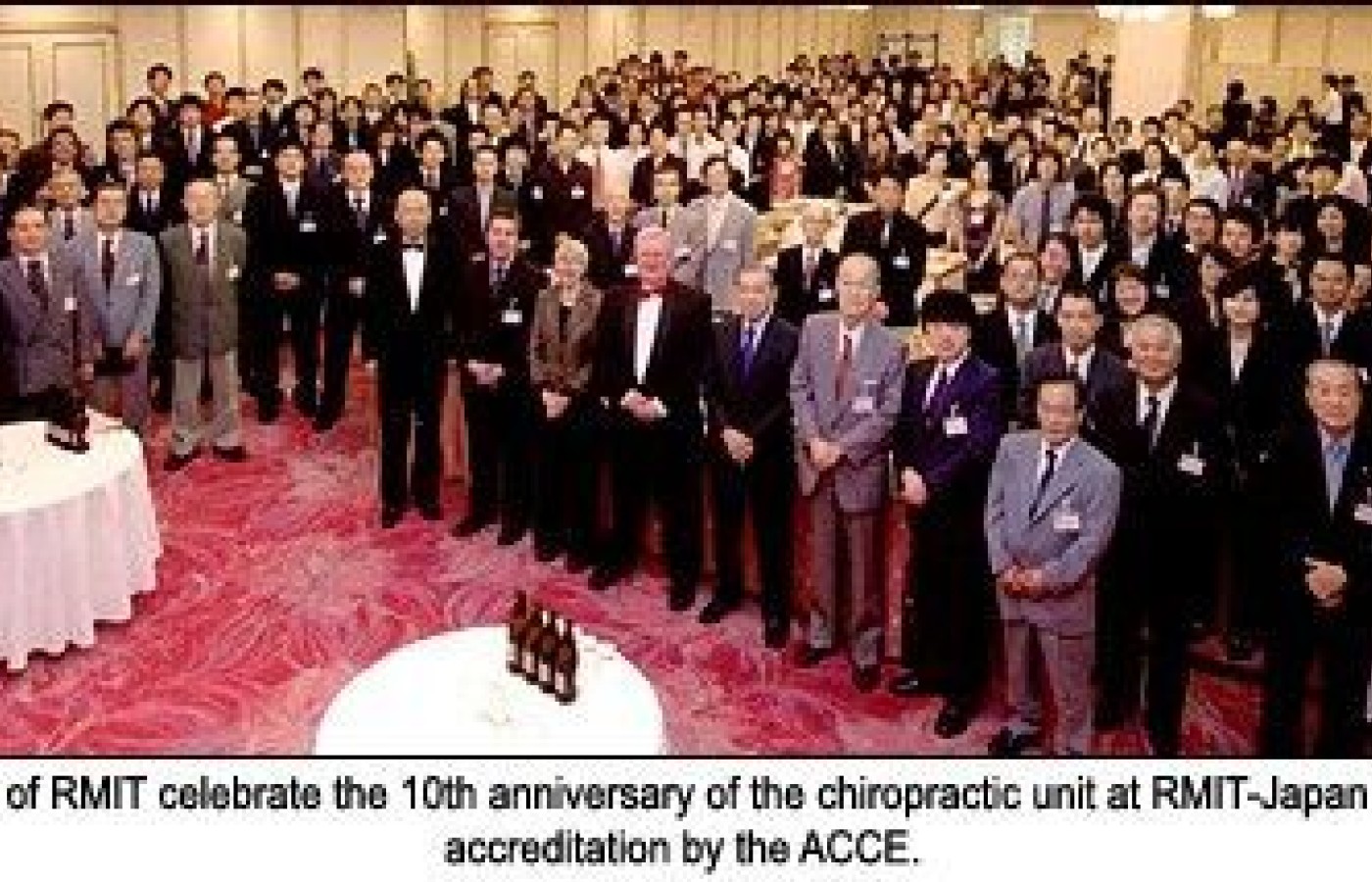It’s a new year and many chiropractors are evaluating what will enhance their respective practices, particularly as it relates to their bottom line. One of the most common questions I get is: “Do I need to be credentialed to bill insurance, and what are the best plans to join?” It’s a loaded question – but one every DC ponders. Whether you're already in-network or pondering whether to join, here's what you need to know.
RMIT-Japan Becomes First Accredited Chiropractic School in Asia
TOKYO - On Sept. 17, 2005, more than 300 students, staff and associates of the Royal Melbourne Institute of Technology (RMIT) University's Japan Unit held a ceremony in recognition of two milestones in the school's history. In addition to marking its 10-year anniversary, the unit celebrated a landmark achievement in chiropractic education, becoming the first school in Asia to receive full accreditation for its Bachelor of Applied Science/Bachelor of Chiropractic Science degree program.
RMIT-Japan's chiropractic program received full accreditation from the Australasian Council on Chiropractic Education (ACCE), one of two agencies in Australia that accredits university chiropractic programs. In a Sept. 5, 2005 letter addressed to the unit, ACCE President Peter Drake announced the program would be accredited through Dec. 31, 2008, and called the accreditation "a significant event" for chiropractic. Stated Drake in his letter:
"The Council's decision was based on recommendations from the ACCE Commission on Accreditation (COA), which had deliberated on a self-evaluation report, the inspection report and a response to that report by RMIT-Japan, and discussions with a program representative.

These procedures are in accordance with ACCE standards.
"This is a significant event in the annals of Australasian chiropractic history, as it is the first accreditation assessment to be conducted beyond Australasia by the ACCE within the context of its membership with The Councils on Chiropractic Education International (CCEI). It is also the first accreditation of a chiropractic program in Japan."
At the ceremony, Dr. Kazuyoshi Takeyachi, senior executive officer of the chiropractic unit at RMIT-Japan, praised the Japanese Chiropractic Association for its help in the creation and maintenance of the chiropractic unit, and for promulgating "the highest ideals" in developing the chiropractic profession in Japan. Dr. Phillip Ebrall, head of the division of chiropractic at RMIT University in Melbourne, Australia, attributed the success of the program to the high levels of "personal vision, group commitment and trust" between the JCA and RMIT, and emphasized Dr. Takeyachi's role in achieving an accredited, university-level chiropractic program.
The chiropractic program at RMIT-Japan was established in 1995 through an agreement between RMIT University-Melbourne and the JCA. It is located in Shinbashi, a renowned business district in central Tokyo. The program consists of a four-year, 4,208-hour course of study, which combines basic science with chiropractic diagnosis and practice, and an extensive clinical internship. Graduates of the program receive bachelor's degrees in both chiropractic science and applied science.



